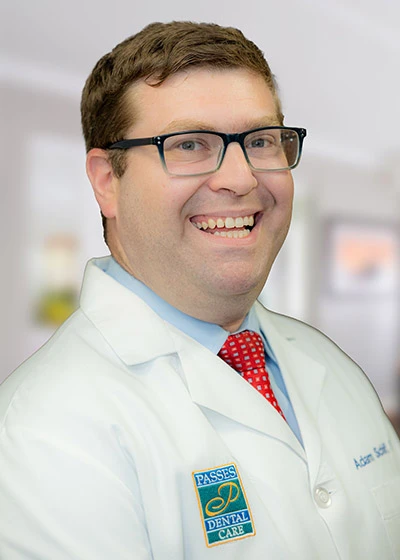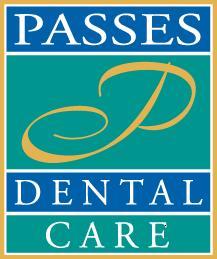For many of us, the new year is a time to reevaluate our habits and improve our health. This opportunity for reflection is one reason people around the world participate in “Dry January,” a month of avoiding alcoholic beverages. While you might expect benefits such as increased energy and weight loss, many people are surprised to learn that decreasing their alcohol consumption might have positive consequences for their oral health as well.
6 Ways Alcohol Affects Your Teeth
We are all familiar with the dental effects of drinks such as acidic sodas and coffee, but here are some ways drinking alcohol affects your teeth.
Dry Mouth
Alcohol is a famously dehydrating substance. Anything that reduces your body’s hydration will cause your salivary glands to produce less saliva in your mouth. One of saliva’s purposes is to wash away microbes from food and drinks. When there is less of it in your mouth, harmful bacteria can cling to your teeth, increasing your risk of tooth decay.
If you choose to drink alcohol, you can reduce the effects of dehydration by drinking one glass of water for every alcoholic beverage you take in. This practice can keep saliva flowing and improve your oral health.
Plaque Buildup and Cavities
Many alcoholic cocktails have a high sugar content, one of the main risk factors for plaque buildup and tooth decay. Mouth bacteria thrive on sugar. The more you consume, the more harmful bacteria can proliferate and eat away at your tooth enamel. Be mindful of the number of sweet drinks you choose. Drinking water in between sugary beverages can help to keep your mouth cleansed.
Gum Disease
Frequent or heavy drinking can have grave consequences for the health of your gums. One scientific study points to a strong correspondence between excessive alcohol consumption and gum disease. Those who drink heavily have higher instances of gingivitis. Conversely, mild drinking does not present a significant risk to your gum health. Reducing your alcohol intake can help prevent gum disease.
Teeth Grinding
While many people choose to drink alcohol to relax, the substance can often have the opposite effect on the body. Your system may experience higher stress levels after drinking, particularly if you combine alcohol with coffee, energy drinks, or caffeinated sodas. These substances can make your teeth grinding worse. Teeth grinding can cause enamel erosion and many other oral health issues. Try to avoid these beverages in the hours before bedtime.
Stained Teeth
Your teeth’s susceptibility to staining often depends on the color of the spirits or wine you consume. Dark liquors, red wines, and colorful syrups such as grenadine can cause staining to the teeth. While stains may not cause pain or increase your risk of disease, they can have a tremendous impact on your self-esteem.
If you choose to occasionally drink red wine or dark spirits, brushing your teeth soon afterward can mitigate the potential for staining. However, long-term drinking may lead to stains that might require professional teeth whitening techniques.
Oral Cancer
Cancer is one of the most serious risks of regular alcohol consumption. This risk is particularly strong if you also smoke or chew tobacco. These two substances can bolster each other’s harmful effects: as alcohol dehydrates and deteriorates the cells in the mouth, tobacco’s carcinogens are better able to permeate oral tissues.
While everyone who smokes and drinks should remain alert to the dangers of oral cancer, those in certain segments of the population should be particularly concerned:
- Age - Most people are 40 or older when they discover oral cancer
- Gender - Men are twice as likely as women to develop oral cancer
- Ethnicity - Oral cancer affects double the percentage of Black Americans compared to white Americans
Lowering your alcohol intake and quitting smoking are two of the most significant actions you can take to reduce your risk of developing oral cancer. Your Great Neck dentist can advise you on what steps you can take to increase your chances of success.
Call [firm-name] to Make an Appointment Today
While mild alcohol consumption does not present significant risks, drinking frequently or heavily can have devastating dental consequences. If you are concerned about the effects of alcohol on your teeth, [firm-name] can help you understand the changes you can make to improve your oral health. In addition to regular cleanings, our team can help you if you want to whiten your smile, remove stains, and protect your gum health.
Call the Great Neck dental professionals at [firm-name] today at [phone-number linked="true"] or fill out our online form for an appointment.
More Blog Posts
Location
415 Northern Blvd, Floor 2,
Great Neck, NY 11021
Office Hours
MON8:00 am - 5:00 pm
TUE - WED10:00 am - 7:00 pm
THU9:00 am - 6:00 pm
FRI8:00 am - 5:00 pm
SAT8:00 am - 2:00 pm
SUNClosed










